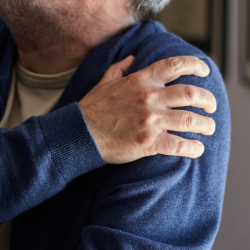20+ Years Experience
Specialist Private Drug Rehab

Crack cocaine addiction is a powerful and destructive force that can devastate lives.
In order to overcome this life-threatening addiction, it is crucial to seek professional help and equip oneself with the necessary tools for lasting recovery.
This blog post delves into the intricacies of crack cocaine addiction, the importance of professional treatment, crack cocaine and rehab, treatment centres, and the comprehensive approaches employed to promote a drug-free life.
Crack cocaine, a derivative of cocaine, is notorious for its highly addictive nature.
The short-lived euphoric effects of crack cocaine, lasting only about 10 to 15 minutes, contribute to the development of drug addiction as individuals continuously seek to replicate this high.
The consequences of crack cocaine addiction are severe, with long-term effects including:
Addressing these issues and supporting lasting recovery necessitates comprehensive crack cocaine treatment.
Those struggling with addiction to crack cocaine would significantly benefit from attending a private crack cocaine rehab. These private crack cocaine rehab facilities provide:
Deciding to attend crack rehab or to attend crack cocaine rehab and undergoing a treatment programme can be a crucial step towards recovery from crack crack cocaine substance abuse, alone.
Various forms of cognitive, talking, and creative therapies are provided as part of crack cocaine treatment in a rehab centre.
These therapies aim to address the root causes of addiction and equip individuals with the necessary coping mechanisms to recover successfully and prevent relapse.
Given the lifelong nature of addiction recovery, a comprehensive addiction treatment and plan incorporating a wide range of therapeutic approaches is a prudent choice.
A beneficial support system, wherein professionals supervise detoxification and rehabilitation while ensuring mental health and physical health, is provided by professional help for cocaine abuse.
Recognising the need for crack cocaine rehabilitation can be the first step towards recovery from other substances. Indications that suggest the need for more crack cocaine rehab include:
Inpatient rehab is considered the most effective course of crack addiction treatment for crack cocaine addiction due to its capacity to immerse individuals in the program, away from everyday stress, triggers, and temptations.
This environment allows them to focus solely on recovery and develop new, healthier patterns of behaviour. Additionally, finding a treatment centre that specialises in treating crack addiction greatly increases the likelihood of a successful recovery.
Family and friends can play a significant role in assisting someone with crack cocaine addiction by providing support and advocating for them to pursue treatment.
When seeking professional help for crack cocaine addiction, considering all available treatment options is paramount.
Access to a treatment programme, various therapies, support groups, and even vocational training can help recovering addicts acquire the necessary skills to facilitate their reintegration into the community. Substance Rehabilitation UK can offer assistance in locating the appropriate treatment centre.
There are several types of crack cocaine rehabilitation programs available, including inpatient rehab, outpatient, and intensive outpatient programs.
Inpatient rehabilitation programs typically take place within a residential treatment centre, focusing on cognitive behavioural therapy, support groups, psychoeducational, and process group therapy.
It is generally recommended that rehabilitation for a crack addiction treatment last between about twenty-eight days and 30 and 90 days, with the ideal duration being 28 days.
Outpatient rehab programs involve regular, scheduled one-on-one sessions with a therapist. These programs provide flexibility but may require more self-discipline and commitment from the individual.
Intensive outpatient programs, on the other hand, are comparable to outpatient programs but involve more frequent and intensive sessions.
These programs can offer a higher level of support while still allowing individuals to maintain their daily responsibilities.
Choosing the right rehab program depends on the individual’s specific needs, the severity of their addiction, and their personal preferences.
Given that each type of program has its benefits and drawbacks, careful consideration of the options and seeking professional guidance before decision-making is advised.
A holistic approach to crack cocaine rehabilitation is of great importance, as it addresses the addiction to crack cocaine addiction’s physical, psychological, and emotional components through various therapies.
Facilities like Sanctuary Lodge offer a selection of therapies with a holistic approach, such as:
These therapies, addressing all aspects of an individual’s emotional well being-being, contribute to a full recovery, that is more effective and lasting.
Each patient’s treatment plan will be tailored to their individual needs and may include a variety of therapeutic interventions.
The objective of crack cocaine rehabilitation at Sanctuary Lodge is to furnish clients with the resources necessary to achieve a successful recovery from drug use.
By focusing on the root causes of crack cocaine addiction and teaching healthy coping mechanisms, individuals have a better chance of staying drug-free in the long run.
Success during rehabilitation largely depends on one’s openness to various forms of therapy. Different therapy modalities resonate with different individuals, and finding the right combination of therapies can ignite a spark of hope that gives the necessary strength to continue on the path of sustained full recovery.
Medical detox is the initial stage of crack cocaine rehabilitation and serves to eliminate all traces of crack cocaine from the body, typically lasting up to 7 days.
During this process, professionals can manage withdrawal symptoms by employing medications such as Buspirone, which has demonstrated some efficacy in reducing anxiety associated with withdrawal in cocaine addicts.
The detoxification process can be challenging, as withdrawal symptoms can be uncomfortable and, in some cases, dangerous.
However, the support of medical professionals during detox ensures that individuals receive the care and attention they need to safely navigate this stage of recovery.
Post-acute withdrawal symptoms (PAWS) can persist for several weeks or months, so it is essential to continue receiving support during this period.
Undergoing medical detox under the supervision of an admissions team of professionals enables individuals to:
This support ensures that individuals receive comprehensive care and support during the detox process.
Various therapy modalities are used in crack cocaine rehab to address the underlying causes of crack addiction and teach effective coping mechanisms.
One such therapy is Cognitive Behavioral Therapy (CBT), which focuses on cognitions and behaviours that perpetuate addiction while fostering positive and adaptive, best coping mechanisms and thinking strategies.
Other therapeutic interventions may include dialectical behaviour therapy, which emphasises the development of emotional regulation and interpersonal skills, and group therapy, which provides individuals with the opportunity to share experiences and learn from others in similar situations.
Engaging in a range of therapy treatments allows individuals to gain valuable insights into their addiction and to develop the essential skills for relapse prevention.
The aim of therapy in crack cocaine rehabilitation is to identify the fundamental source of addiction and equip clients with the optimal coping mechanisms to avert relapse.
Through a combination of these therapeutic interventions, individuals can build a strong foundation for life long process of lasting recovery and a drug-free life.
Maintaining sobriety and preventing relapse necessitate the establishment of a strong support network during and after rehab.
Having a confidant to converse with and provide assistance can make the difference between reverting to their substance abuse and use and leading a life of sobriety.
Support groups such as Cocaine Anonymous (CA) and Narcotics Anonymous (NA) are recommended for individuals experiencing crack cocaine addiction, as they provide a safe and secure setting and space to share experiences and receive encouragement from others in similar situations.
Family involvement plays a significant role in building a strong support system. Primrose Lodge is a facility that provides weekly support groups for families of clients who are undergoing crack cocaine rehab treatment at their centre.
This support group is available to recovering clients and anyone close to the rehab client. By involving family members in the recovery process and attending rehab together, individuals can strengthen their support network and improve their chances of staying drug-free.
Ongoing counselling and therapy can also be beneficial in maintaining sobriety after completing a rehab program.
These services offer continued support and reinforcement of the coping skills and strategies learned during rehabilitation, helping individuals stay on track with their recovery goals.
Relapse prevention is a critical component of crack cocaine addiction treatment.
Recognising the emotions and sensations that prompt the desire to use can help individuals reduce the likelihood of relapse. Various relapse prevention strategies include:
If a relapse of crack abuse occurs, it is highly recommended to return to rehabilitation, as there are potentially serious health risks associated with crack cocaine abuse.
Relapse is not a sign of failure but an opportunity to reassess one’s recovery plan and make necessary adjustments.
By seeking help and guidance from professionals, individuals can learn valuable lessons from their relapse and develop more effective strategies to prevent future occurrences.
Incorporating relapse prevention strategies into daily lives can raise individuals’ chances of maintaining long-term sobriety and leading a fulfilling, drug-free life.
For those who have achieved initial sobriety, aftercare, offering ongoing support and treatment services, is integral to sustaining recovery from crack cocaine addiction. Such programs may include:
It is recommended to partake in aftercare programs to increase the likelihood of long-term recovery.
The aim of aftercare in crack cocaine rehabilitation is to:
Organisations like UKAT offer free aftercare for one year for crack cocaine addiction, providing individuals with the necessary resources and support to stay drug-free even after completing their rehab program.
The cost of crack cocaine rehabilitation can be a concern for many individuals seeking help. However, there are options available for funding treatment, including insurance coverage and government assistance programs.
The expense associated with crack cocaine treatment and rehabilitation varies depending on the facility and duration of stay.
In the United Kingdom, the cost of residential rehabilitation ranges between £2000 and £4000 per week, while the average cost of a single therapy session is between £40 and £60.
While NHS rehab programs do not offer crack cocaine addiction treatment, they may be able to provide financial assistance for those in need.
Alternatively, private treatment offers immediate care and access to specialised support and services tailored to each individual’s needs.
Weighing the potential benefits of recovery against the financial investment required is a vital step when considering treatment options.
By exploring various financial options and seeking assistance from professionals, individuals can access the treatment they need to overcome crack cocaine addiction and start their journey towards lasting recovery.
Crack cocaine addiction can lead to devastating health consequences such as organ damage, heart problems, cognitive impairment, and psychological disturbances.
Crack cocaine addiction treatment can be addressed through inpatient, outpatient, and intensive outpatient programs.
These provide structured professional treatment and support for successful rehabilitation.
Medical detox is an essential part of crack cocaine and rehab in treatment centres, as it helps to rid the body of all traces of the substance. It typically lasts up to 7 days.
Relapse prevention strategies for crack cocaine addiction include constructing a supportive network, engaging in therapy or counselling, joining support groups, exercising stress management techniques, and avoiding triggers and high-risk situations. Formulating a relapse prevention plan is also important.
Aftercare is critical for sustaining recovery from crack cocaine addiction as it provides ongoing support and treatment to maintain sobriety, ultimately increasing the chances of a successful long-term recovery.
It is important to have a plan for aftercare that includes regular meetings with a therapist or counsellor, attending support groups, and engaging in activities that promote healthy living.
These activities can include exercise, healthy eating, and developing positive relationships with family and friends.
Overcoming crack cocaine addiction is a challenging yet achievable goal in crack rehab.
By seeking professional help, engaging in comprehensive treatment approaches, and building a strong support system, individuals in crack rehab can successfully in crack rehab and navigate the road to recovery.
It is essential to remain committed to one’s recovery journey and utilise the tools and resources provided through rehab and aftercare services. With dedication and perseverance, a drug-free life is within reach.
There are a range of other services that we can provide. Have a look at the list below for more information:























We Aim To Reply To All Enquiries With-in 24-Hours